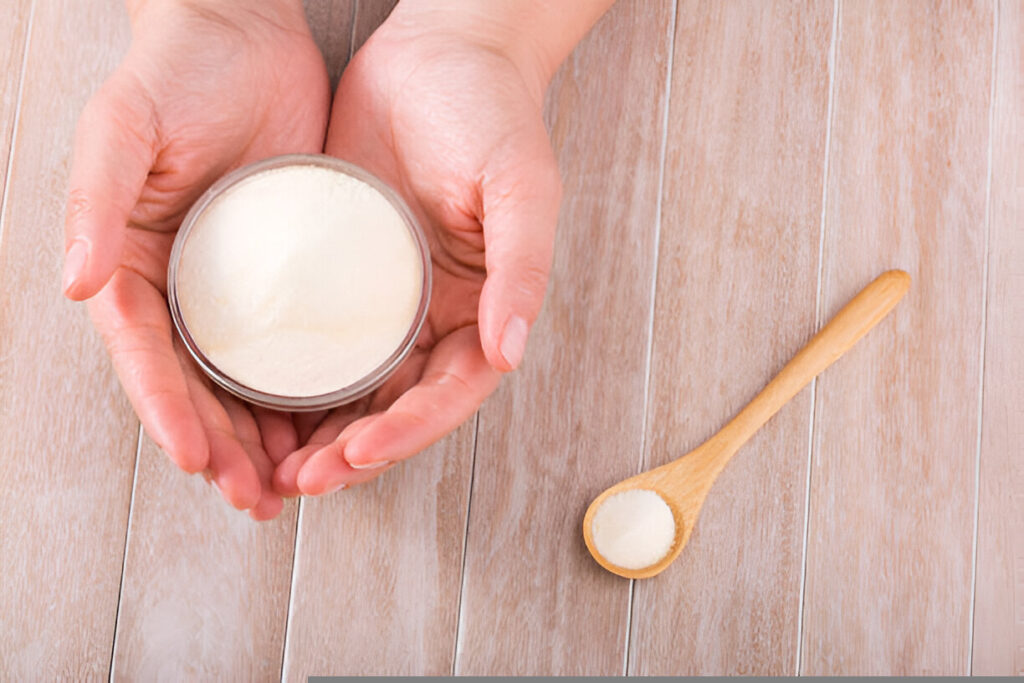Collagen plays a vital role in the body’s natural healing process. It’s the primary structural protein found in the skin, tendons, ligaments, and connective tissues, helping wounds heal by supporting new tissue formation. As medical research continues to confirm collagen’s benefits for wound repair, collagen powders have become a popular treatment option for patients dealing with acute injuries, surgical wounds, burns, or chronic ulcers.
However, not all collagen powders are created equal. Choosing the right one for wound care requires careful consideration to ensure that the product truly supports healing rather than complicating recovery. Here’s what you should know when selecting a collagen powder for wound care.
Why Collagen Powder Is Used for Wound Care
When the skin is injured, the body’s healing process relies heavily on collagen to rebuild the damaged area. Collagen provides a scaffold that cells use to repair themselves, and it helps regulate inflammation and tissue regeneration.
In wound care, applying collagen powder directly to the wound or incorporating it into dressings can stimulate faster healing, reduce the risk of infection, and even minimize scarring. It’s especially beneficial for chronic wounds like pressure ulcers, diabetic foot ulcers, or venous leg ulcers, where natural healing is impaired.
Key Factors to Consider When Choosing Collagen Powder
Choosing a collagen powder specifically for wound care is different from selecting a beauty supplement. Medical-grade collagen products must meet specific standards to ensure they support wound healing safely and effectively. Here are the most important things to keep in mind:
Source and Type of Collagen
Collagen can come from several sources, such as bovine (cow), porcine (pig), or marine (fish). Bovine collagen is most commonly used in wound care because it closely resembles human collagen and is rich in Types I and III collagen, which are essential for skin healing. Marine collagen is another good option, especially for those with dietary restrictions, as it’s highly bioavailable and easily absorbed. Knowing the source is important, especially if allergies or religious restrictions are a concern.
Purity and Additives
For wound care, purity matters. Choose a collagen powder that is free from unnecessary additives, preservatives, dyes, or fragrances. Additives can sometimes cause allergic reactions or irritation in an open wound. Medical-grade collagen powders are specifically processed to remove anything that could interfere with healing.
Formulation for Wound Healing
Not every collagen supplement on the market is intended for wound treatment. Look for products that are clearly labeled for “wound care” or “medical use.” These powders are often sterilized and prepared in a way that ensures they are safe for direct application to an open wound.
Absorption and Bioavailability
Hydrolyzed collagen, also known as collagen peptides, is broken down into smaller chains of amino acids. This makes it easier for the body to absorb and use where it’s needed most. When dealing with wounds, faster absorption means faster tissue regeneration and healing.
Regulatory Approval
Whenever possible, select a product that has been approved or cleared by regulatory agencies, such as the FDA or similar health authorities, especially if it’s intended for serious wound management. These certifications help guarantee the product has been tested for safety and effectiveness.
Packaging and Storage
Sterility is crucial for wound care products. Look for collagen powders that are individually packaged or provided in sterile, resealable containers. Proper packaging helps prevent contamination that could lead to wound infection.
Here’s a quick checklist to review when making your decision:
- Confirm the source (bovine, marine, or porcine).
- Verify the product is medical-grade and intended for wound care.
- Check for purity (no unnecessary additives or allergens).
- Look for hydrolyzed collagen for better absorption.
- Ensure it’s properly packaged for sterility.
- Prefer products with regulatory approval when available.
How Collagen Powder Is Used in Wound Care
Once you select the right collagen powder, it’s typically applied directly to the wound after cleaning. The powder can be sprinkled over the wound bed, where it will interact with natural wound fluids to form a supportive matrix for healing cells. In some cases, collagen powders are used alongside secondary dressings to protect the wound and keep the collagen in place.
The frequency of application varies depending on the severity and type of wound, but many wound care professionals recommend changing the collagen dressing every one to three days. Always follow a healthcare provider’s instructions when using collagen powder, especially for complex or chronic wounds.
Choosing the right collagen powder for wound care can make a meaningful difference in the healing process. A high-quality, medical-grade collagen product can speed up recovery, reduce complications, and even improve cosmetic outcomes after the wound has closed.
It’s important to avoid general wellness collagen supplements and instead focus on products specifically designed and labeled for wound management. Paying attention to the source, purity, formulation, and sterility of the collagen powder will ensure you’re giving the wound the best possible support for fast, safe healing.
If you’re unsure which collagen powder is best for your specific needs, consulting a healthcare professional or wound care specialist can help guide your decision and optimize your recovery.


